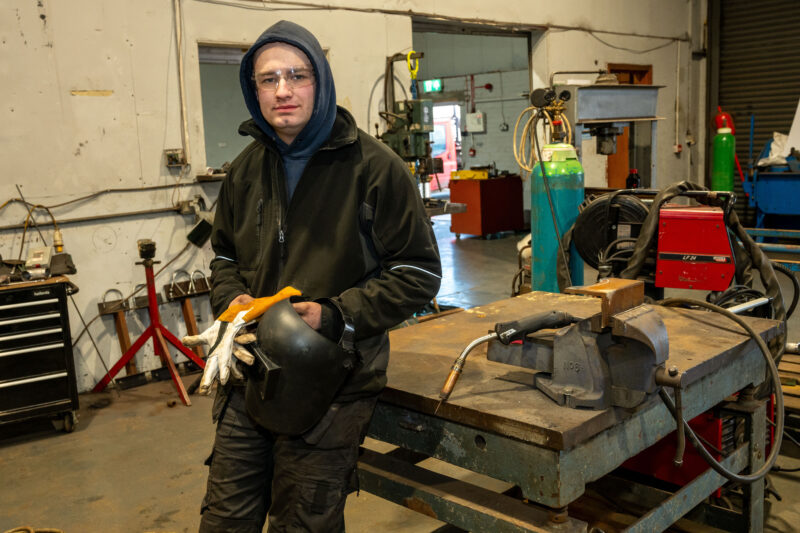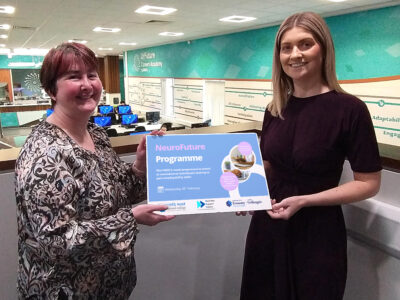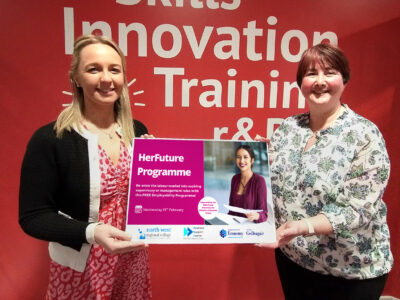Apprenticeships at North West Regional College (NWRC) have consistently demonstrated their value in bridging the gap between education and industry by providing learners with real-world skills, while meeting the evolving needs of local and regional employers.
Jay Gurney joined NWRC as a level 2 apprentice fabricator and welder. From day one his employers noticed his natural ability and work ethic, becoming the 'go-to' person for maintenance and breakdowns. He’s now completed his course and works for CT Engineering in Maydown.
Apprenticeships at Level 2 offer learners a critical first step into a career, equipping them with practical, hands-on experience while earning a wage. Level 3 apprenticeships go further, offering advanced technical skills and leadership training that prepare apprentices to become specialists in their chosen fields. Across sectors such as engineering, IT, construction, health and social care, hospitality, and digital technologies, Northern Ireland’s FE colleges are setting the benchmark for high-quality vocational education.
The Unique Advantages of Apprenticeships at FE Colleges
While FE Colleges are not the only pathway for apprenticeship training, there are many reasons why hundreds of students each year decide to study with them.
1. Quality Assurance and Academic Rigor - FE colleges operate within rigorous quality standards, inspections, and oversight. Learners can therefore be confident of high-quality teaching and learning, consistent delivery aligned with national qualification frameworks and robust support structures, including learning support, careers guidance, and pastoral care.
2. Industry Standard Facilities – Every FE college can offer state-of-the-art workshops, laboratories and training environments that replicate real workplace settings. This includes cutting-edge technology in engineering, IT, health care, construction, and more and simulated environments that prepare learners for the workplace.
3. Experienced Lecturers and Specialist Tutors - Colleges employ highly qualified staff with both teaching credentials and real-world industry experience. Learners benefit from expert instruction, up-to-date and industry relevant knowledge and mentoring from tutors who understand both the academic and vocational demands of the role.
4. Pathways to Progression - FE colleges provide seamless progression routes. Level 2 and Level 3 apprentices often progress into Higher Level Apprenticeships, Foundation Degrees, or full degree programmes. Colleges can also offer opportunities to switch pathways as interests or goals evolve.
5. Access to Enrichment Opportunities - College apprenticeships often include employer networking events, competitions on a national stage and international exchanges. Many apprentices will also be offered the opportunity to achieve additional qualifications, for example Health & Safety, First Aid or Digital Skills, all of which enhance employability.
6. Reputation and Employer Links - Northern Ireland’s FE colleges have long-established partnerships with local, national, and multinational employers. These links help secure high-quality apprenticeship placements and give learners access to real job opportunities post-qualification.
Mel Higgins, Chair of the FE Sector Principals Group and WorldSkills UK Trustee said:
"Apprenticeship programmes delivered within the FE sector are transforming lives and businesses across Northern Ireland. They empower individuals with meaningful career pathways and provide employers with a skilled, job-ready workforce. The continued success of our apprentices in WorldSkills competitions is a testament to the high standards of teaching and training delivered by our colleges."
As the economy continues to evolve, the FE sector in Northern Ireland remains committed to delivering world class apprenticeship programmes that not only address skills gaps but drive innovation and regional growth.




